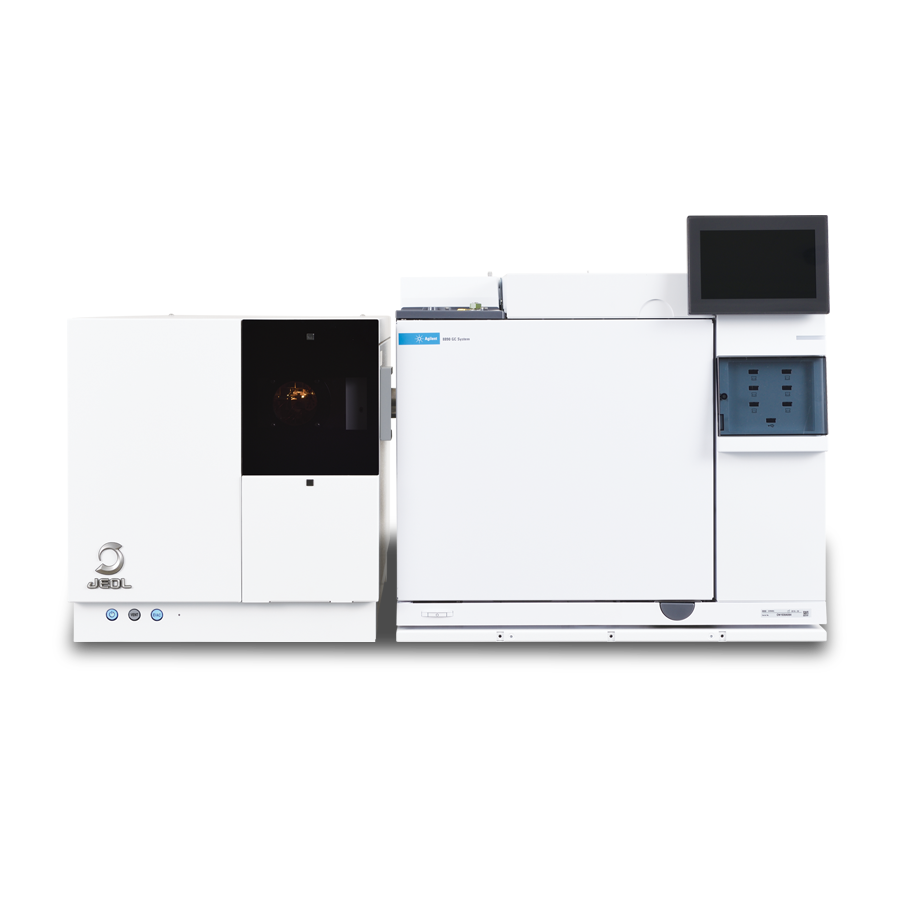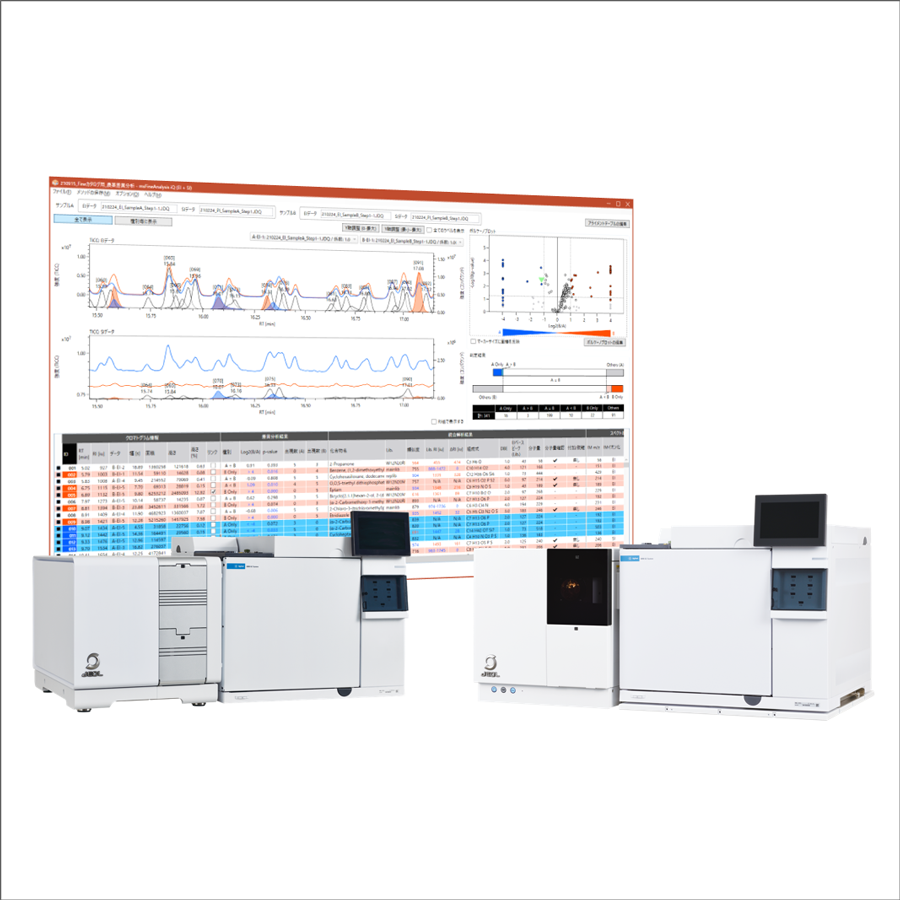Analysis of additive in film by using single-scan mode of GC/MS/MS
MSTips No.450
Introduction
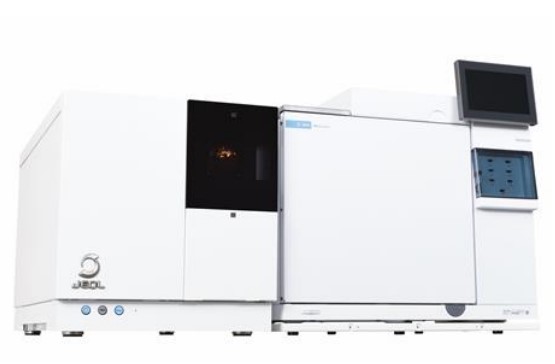
Fig. 1 JMS-TQ4000GC UltraQuad™ TQ
GC triple quadrupole mass spectrometer JMS-TQ4000GC UltraQuadTM TQ (Fig. 1) can be used as QMS through its single QMS mode in addition to qualitative and quantitative analysis of trace components by MS/MS mode. In general, it is said that the sensitivity of single QMS mode in GC/MS/MS is lower than that of QMS due to the longer distance from the ion source to the detector. However, the JMS-TQ4000GC reduces the sensitivity reduction by (1) achieving high ion transmission through the high-precision large hyperbolic quadrupole, (2) reducing ion loss through the extremely short collision cell transit time by using a “Short collision cell”, (3) eliminating noise-causing neutral particles through the parallel plate electrostatic deflector installed in front of the detector. In this application, we report on the verification of whether additive analysis in materials can be performed in the same way as conventional QMS using the single QMS mode, and also conducted analysis using msFineAnalysis iQ.
Method
The measurement was performed using Pyrolysis system (Frontier Laboratories Ltd.) with GC triple quadrupole mass spectrometer JMS-TQ4000GC UltraQuad™ TQ. About 2 mg of polypropylene film used as packaging material was used for the EI measurement, and about 6.5 mg was used for the PI measurement under the conditions shown in Table 1.
Table 1 Measurement condition

Result
Comparison results with QMS
The TICC obtained from JMS-Q1600GC and the TICC obtained from JMS-TQ4000GC are shown in Fig. 2. It was confirmed that there was no significant difference in the TICC peaks. Mass spectra of peak No. 1, 1', 2 and 2' are shown in Fig. 3. It was confirmed that similar mass spectra were obtained using JMS-Q1600GC and JMS-TQ4000GC. Peak No. 1 and 1' were estimated to be "7,9-Di-tert-butyl-1-oxaspiro (4,5) deca-6,9-diene-2,8-dione", which is a degradation products of the hindered phenolic antioxidant "Pentaerythritol tetrakis [3-(3',5'-di-tert-butyl-4'- hydroxyphenyl)propionate]". Also, peak No. 2 and 2' were estimated to be stearic acid, a fatty acid-based lubricant.
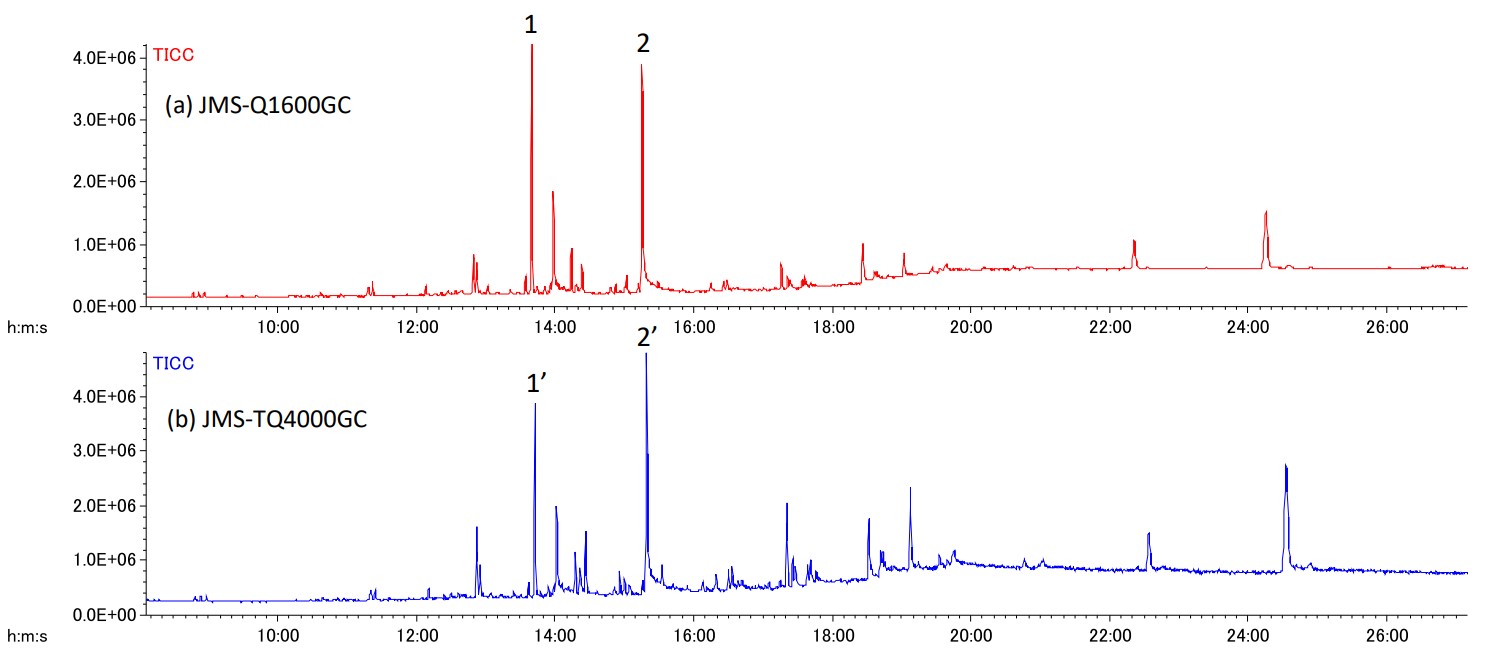
Fig. 2 Comparison TICC by JMS-Q1600GC(a) with TICC by JMS-TQ4000GC(b)
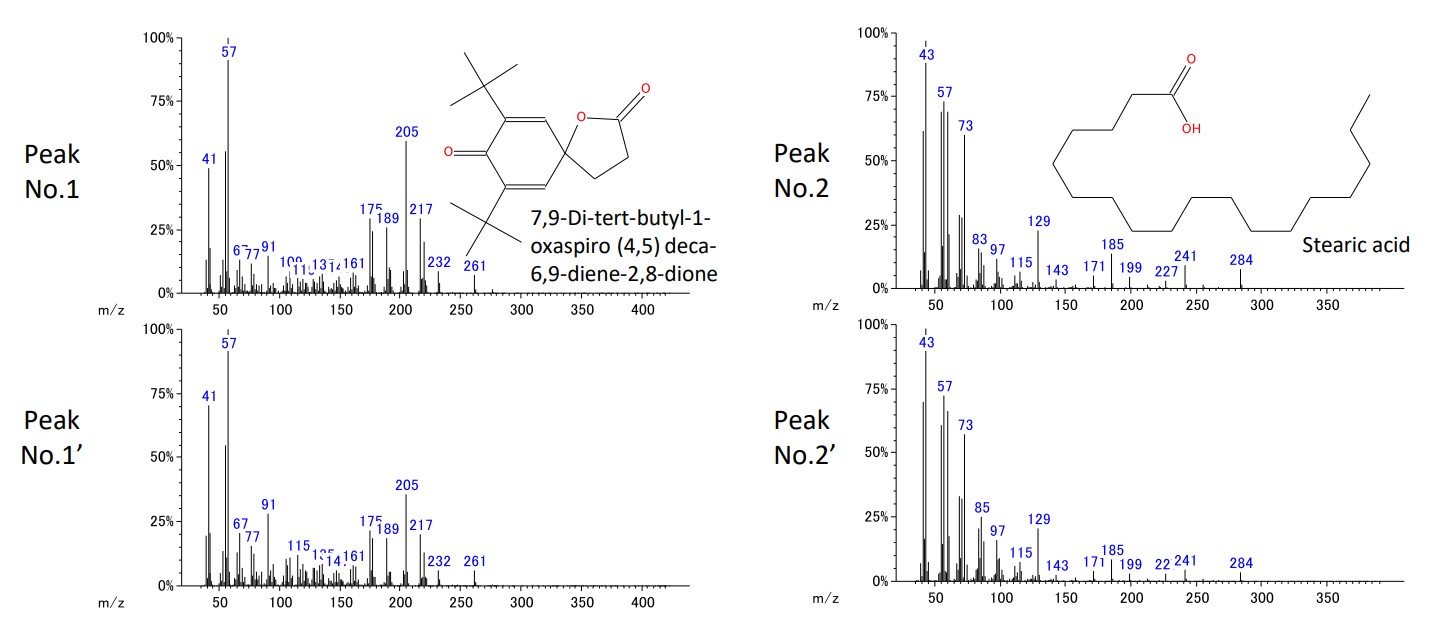
Fig. 3 Comparison mass spectra by JMS-Q1600GC(No.1&2) with mass spectra by JMS-TQ4000GC (No.1’&2’)
Analysis results with msFineAnalysis iQ
The measurement data acquired in the single QMS mode of the JMS-TQ4000GC can be analyzed by msFineAnalysis iQ. The result of deconvolution detection by msFineAnalysis iQ is shown in Fig. 4. 46 peaks were automatically extracted by the deconvolution detection. The characteristic additive components are shown in Fig. 5. The phosphorus antioxidants "Phenol, 2,4-bis(1,1-dimethylethyl)-, phosphite (3:1) (ID: 044)" and its oxide "Tris(2,4-di-tert-butylphenyl) phosphate (ID: 045)" were observed. For both components, the peak intensity of molecular ion in the EI mass spectrum was weak, but the peak intensity of molecular ion in the PI mass spectrum was strong and clearly observed.
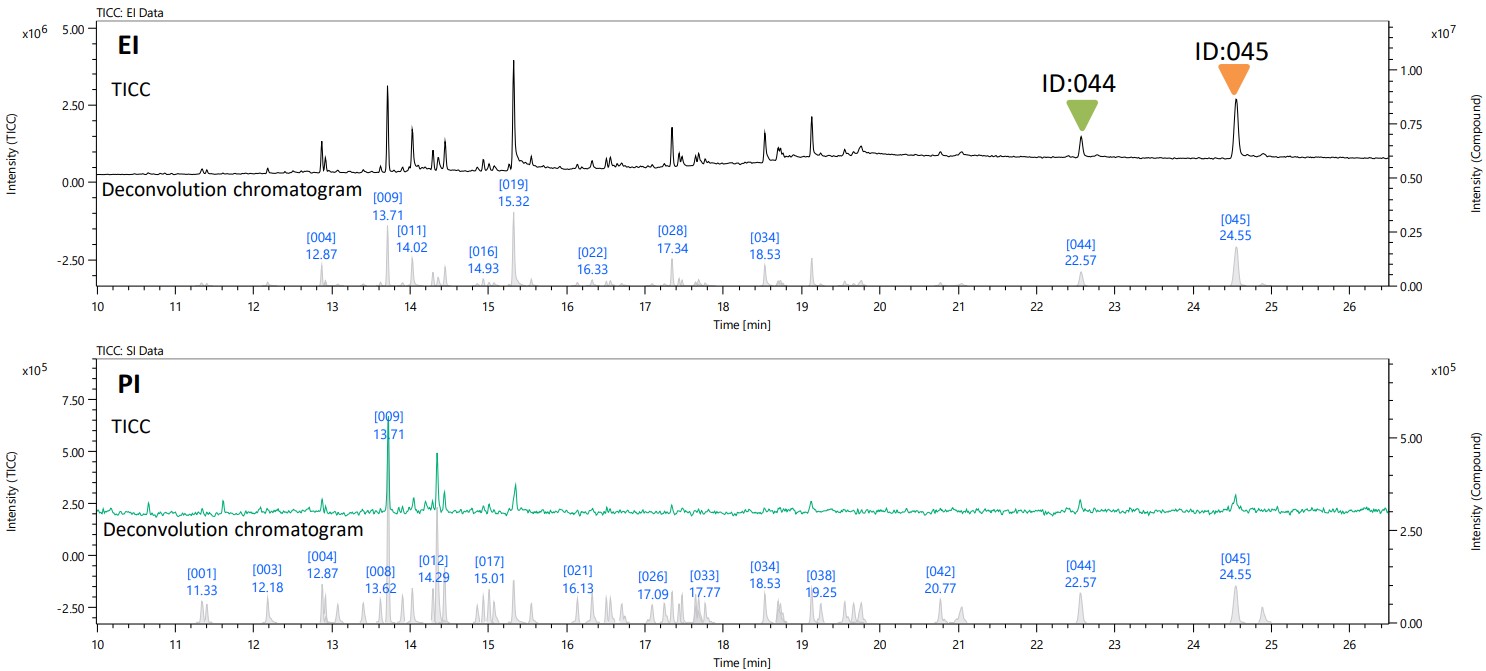
Fig. 4 The result of deconvolution detection by msFineAnalysis iQ using JMS-TQ4000GC single SCAN mode data
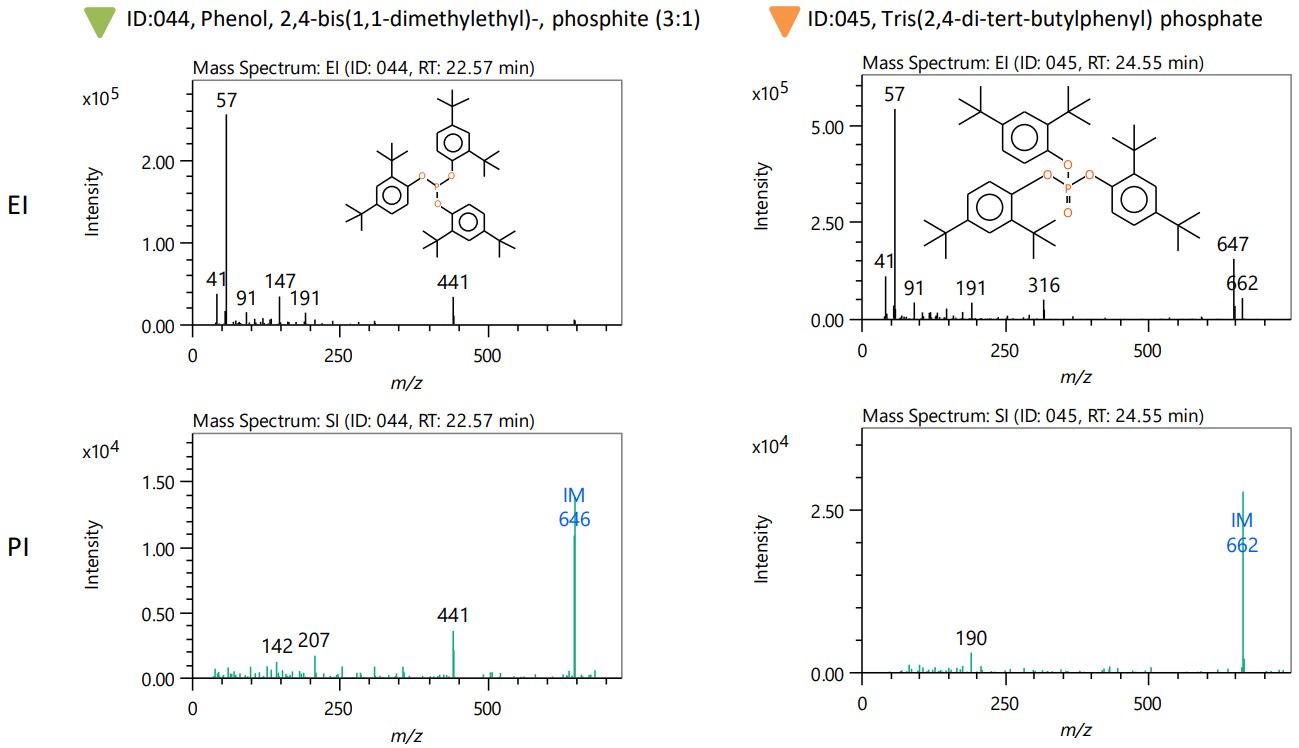
Fig. 5 Mass spectra of ID:044 and ID:045 using JMS-TQ4000GC single SCAN mode data
Conclusion
For the single QMS mode of the JMS-TQ4000GC, it was possible to analyze additive in materials in the same way as conventional QMS. The obtained measurement result was similar to that of QMS. In addition, automatic analysis using msFineAnalysis iQ was also possible, and information on characteristic additive was obtained. Thus, the JMS-TQ4000GC can be used for a wide range of applications because it can perform measurement from single QMS mode to MS/MS mode with a single instrument.
Solutions by field
Related products
Are you a medical professional or personnel engaged in medical care?
No
Please be reminded that these pages are not intended to provide the general public with information about the products.

